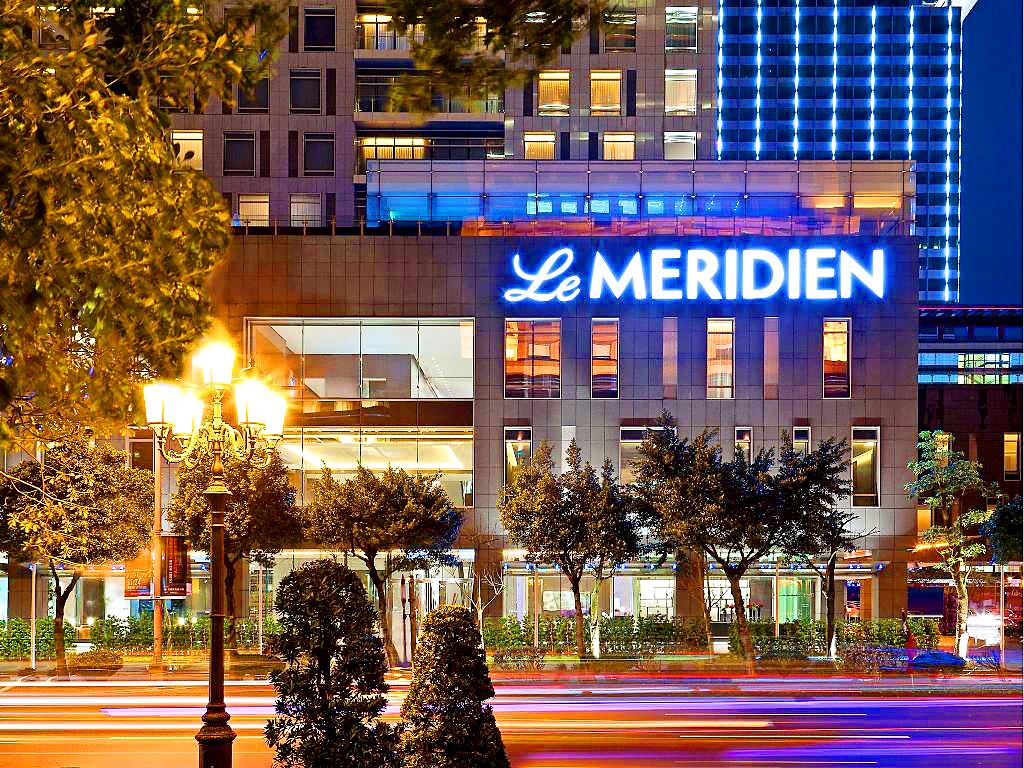The board of luxury hotel operator My Humble House Hospitality Management Consulting Co (寒舍餐旅) has approved a capital reduction plan to wipe out losses and issue special shares via private placements to strengthen its financial health.
The plan comes as the COVID-19 pandemic has cut the Taipei-based hospitality group’s revenue by about 50 percent over the past two years without a quick solution in sight.
The company last year reported a loss of NT$720 million (US$24.67 million), or a loss per share of NT$6.45.

Photo courtesy of ezTravel Co
It was the second consecutive annual loss as Le Meridien Taipei (台北寒舍艾美酒店) and Humble House Taipei (寒舍艾麗) in the city’s Xinyi District (信義), Sheraton Grand Taipei Hotel (台北喜來登大飯店) near Taipei Railway Station and hot spring resort Mu Jiaosi Hotel (礁溪寒沐) in Yilan County all suffered due to lingering border controls and disease prevention measures that weighed on guestroom operations as well as food and beverage sales, the company said.
Combined revenue in 2019 was NT$4.48 billion in 2019 prior to the pandemic, but that slumped to NT$2.8 billion in 2020 and NT$2.32 billion last year, company data showed.
The company’s board on Friday approved a plan to reduce its paid-in capital of NT$1.12 billion by 18 percent, or NT$200 million, to make up for cumulative losses.
The arrangement would allow May Humble House Hospitality to cancel 2 million common shares and bring its capital down to NT$915 million, it said.
The conglomerate would then issue up to NT$200 million of special shares via private placements to boost its capital, it added.
The program would help lower the company’s debt ratio and interest payments, while strengthening operating funds and earnings ability, it said.
My Humble House said it would price its special shares at no less than 80 percent of its reasonable value to safeguard the interests of its shareholders.
It opted for private placements after factoring in fundraising costs, efficiency and feasibility, it said, adding that potential participants are original major shareholders and affiliated companies.
The launch of a new Humble Boutique Hotel (寒居酒店) in Taipei demonstrated that the group is committed to its business and upbeat about the long-term market outlook, it added.
My Humble House shares yesterday closed down 1.34 percent at NT$22.10, a deeper fall than the TAIEX’s 0.62 percent retreat, Taiwan Stock Exchange data showed.

Three experts in the high technology industry have said that US President Donald Trump’s pledge to impose higher tariffs on Taiwanese semiconductors is part of an effort to force Taiwan Semiconductor Manufacturing Co (TSMC, 台積電) to the negotiating table. In a speech to Republicans on Jan. 27, Trump said he intends to impose tariffs on Taiwan to bring chip production to the US. “The incentive is going to be they’re not going to want to pay a 25, 50 or even a 100 percent tax,” he said. Darson Chiu (邱達生), an economics professor at Taichung-based Tunghai University and director-general of

Hon Hai Precision Industry Co (鴻海精密) is reportedly making another pass at Nissan Motor Co, as the Japanese automaker's tie-up with Honda Motor Co falls apart. Nissan shares rose as much as 6 percent after Taiwan’s Central News Agency reported that Hon Hai chairman Young Liu (劉揚偉) instructed former Nissan executive Jun Seki to connect with French carmaker Renault SA, which holds about 36 percent of Nissan’s stock. Hon Hai, the Taiwanese iPhone-maker also known as Foxconn Technology Group (富士康科技集團), was exploring an investment or buyout of Nissan last year, but backed off in December after the Japanese carmaker penned a deal

WASHINGTON POLICY: Tariffs of 10 percent or more and other new costs are tipped to hit shipments of small parcels, cutting export growth by 1.3 percentage points The decision by US President Donald Trump to ban Chinese companies from using a US tariff loophole would hit tens of billions of dollars of trade and reduce China’s economic growth this year, according to new estimates by economists at Nomura Holdings Inc. According to Nomura’s estimates, last year companies such as Shein (希音) and PDD Holdings Inc’s (拼多多控股) Temu shipped US$46 billion of small parcels to the US to take advantage of the rule that allows items with a declared value under US$800 to enter the US tariff-free. Tariffs of 10 percent or more and other new costs would slash such

SENSOR BUSINESS: The Taiwanese company said that a public tender offer would begin on May 7 through its wholly owned subsidiary Yageo Electronics Japan Yageo Corp (國巨), one of the world’s top three suppliers of passive components, yesterday said it is to launch a tender offer to fully acquire Japan’s Shibaura Electronics Co for up to ¥65.57 billion (US$429.37 million), with an aim to expand its sensor business. The tender offer would be a crucial step for the company to expand its sensor business, Yageo said. Shibaura Electronics is the world’s largest supplier of thermistors, with a market share of 13 percent, research conducted in 2022 by the Japanese firm showed. If a deal goes ahead, it would be the second acquisition of a sensor business since